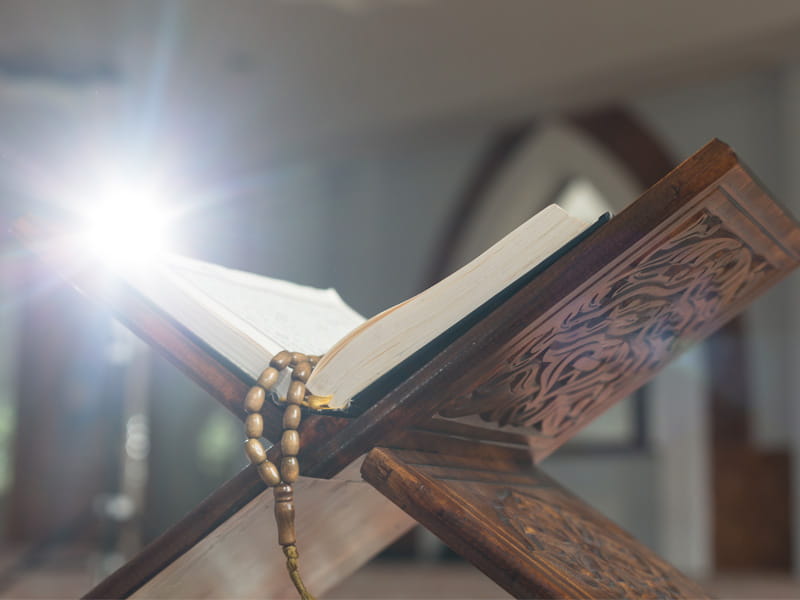As Arabs and Muslims in America, we do appreciate the struggle and the anguish so many before us had to endure to create the safety net of political and social values that, so far, has managed to prevent another tragic chapter from being written for a new American minority.
As human beings, we possess the raw material for good and for evil. History demonstrates how humanity is capable of great acts of benevolence and grotesque acts of cruelty. The same people can, on one day, inflict pain and, on a different day, show compassion.
Reformers do not create a constituency of conscience from thin air; they seek those with the affliction to help them find within themselves dormant powers of good. Martin Luther King, Jr. did exactly that.
In the wake of the September 11 atrocities, we all watched with horror as the tragic and surreal events unfolded on the silver screen. Arab and Muslim Americans, after the shock of the attacks subsided, experienced a piercing sensation of something about to go terribly wrong and with far-reaching social and political consequences to them and to other minorities.
There was an unmistakable air of resignation in the Arab and Muslim communities in the U.S.
Yet what transpired in the few days following the terror attacks was equally surreal. Not since the triumph of Martin Luther King, Jr. and his Civil Rights movement were the newfound American values of fairness put to the test at such an enormous scale. After the theory collided with the reality of September 11, in a cataclysmic fireball of blood and steel, the outcome was most humbling to Arab and Muslim Americans.
The World Trade Center inhabitants were a cross-section of America; the attackers did not discriminate in their violence. So why should any American take the blame because of his or her faith or ethnicity? The obvious answer to this logical argument still escapes some Americans who contributed to an unprecedented surge in hate crimes against Arabs and Muslims in the U.S., as well as members of other ethnic communities who were mistaken for Arabs.
Yet what saved the day was a critical mass of Americans from the media, government, and the public, whose enlightened ideals and values came to the rescue, and thwarted the hateful incitement led by extremist ideologues, such as Michael Savage.
Judging from the plight of Japanese Americans, in the wake of Pearl Harbor, there was little reason to believe Arab and Muslim Americans could have escaped a similar fate.
None of these Muslim non-citizens, we are informed by the FBI, have any terrorist links, with the exception of less than a dozen of them. Months later, the FBI believes it has a strong-enough case to try only one of them.
Some constitutional pundits insist we have no reason to worry as citizens; the Constitution, they maintain, would not allow it.
However, the Constitution that many allude to in defense of our liberties today, is the same Constitution their WWII-era counterparts ignored when Japanese Americans were deprived of their liberties.
It's also the same Constitution which failed to protect African Americans from decades of suffering, until MLK narrowed the gap between theory and practice.
MLK did not invent a new Constitution; he invited his fellow Americans to believe in what it stands for.
While no society is perfect, some societies reform faster then others. The Civil Rights movement was not only an African American triumph; it was an American success. Few Western or non-Western societies have embraced reformers, who are not from the dominant class, with such swiftness.
MLK and his brave followers deserve credit for having the vision and endurance. Equally important is that most Americans had the capacity to embrace a call for justice, even when the price was the dilution of their own political power.
We should not remember Martin Luther King, Jr. and the Civil Rights movement simply as an abstract history. There is nothing abstract about the loss of liberty.
The fact Arab and Muslim Americans have not suffered a catastrophic erosion of their liberties, yet, is a tribute to MLK's legacy and his constituency of conscience that continues to be galvanized by his message of fairness. After September 11, MLK's America delivered again.
There is no time to rest; the journey ahead is still long and treacherous. The racially motivated hate crimes, murders, mass "detentions" and deportations, and media distortions aimed at Arabs and Muslims in America are a reminder that the struggle for fairness is non-stop.
From the Civil War to the Civil Rights movement, the constituency of conscience always prevailed; however, the constituency of hate was only held at bay.
Even as the battle of values rages at the dividing line between decency and intolerance, one must never lose hope in the human spirit. We must remember that today's adversaries could become tomorrow's friends and allies.
There are no zero-sum games when we all belong to the same parcel of land, as MLK taught us.
If only MLK were alive today, he would have been proud, but hardly content.
Yousef Al-Yousef is the Chairman of the American Muslims for Global Peace and Justice - a Washington-based Muslim American advocacy group.

